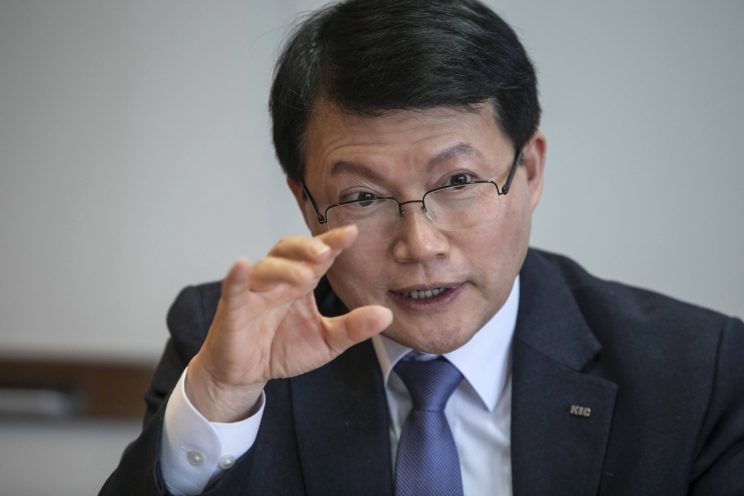South Korea’s $200bn sovereign wealth fund plans to boost investments in Silicon Valley startups as it looks to the metaverse and artificial-intelligence to accelerate its expansion in alternative assets.
Seoungho Jin, who took over the reins of Korea Investment Corp. in mid 2021, also has his eyes on hotels, which he sees as a good play on the global recovery from the coronavirus pandemic.
Jin is looking beyond the recent downturn in listed technology stocks and the wider risks to the sector this year from the Federal Reserve driving interest rates higher. He sees alternative assets accounting for about 25% of KIC’s portfolio by 2025, versus around 17% last year, and assets under management eventually rising to $300bn.
Get the week’s top news delivered directly to your inbox – Sign up for our newsletter
“Some investors say Silicon Valley is already saturated, which I have to concede is partly true, but it is still a source of global growth,” Jin, 59, said in an interview in Seoul. “There are still plenty of good opportunities, if you chase them eagerly.”
KIC has almost doubled in size over the past five years, after a slow start when it was created in 2005 to increase national wealth and contribute to the nation’s finance industry. The fund, which only invests outside of South Korea, has yet to release its results for 2021.
Jin expects to add to headcount in the fund’s San Francisco office in this year to explore investments in tech, health and green ventures in Silicon Valley. He didn’t offer details on any specific investments.
The metaverse concept that is dominating attention there is for an immersive version of the internet, where everyone can interact, play games and complete tasks as a digital avatar, using tools like virtual or augmented reality goggles.
KIC is also putting more money into tech shares, while evaluating opportunities in financial stocks, which may benefit from higher interest rates, he said.
In a wide-ranging interview with Bloomberg, Jin also said:
As well as boosting assets, Jin wants to make risk management more sophisticated and decision-making processes more transparent.
He also sees KIC as providing South Korea with an economic buffer to ensure it never repeats the events of 1997, when it was forced to seek a loan from the International Monetary Fund. Underscoring this point, Jin noted that the $20bn gain KIC made in 2020 was bigger than the emergency loan.
“I realised then how rough life gets for the people of a country with no financial power,” said Jin, who was taking a career break then, studying in the UK.
The pound surged against the won and suddenly he was struggling to pay tuition fees. “If we had a fund like KIC back then, we wouldn’t have experienced the pain.”
Source: Moneyweb
Can’t stop reading? Read more
Blackstone powers up Dropbox with $2.7bn private credit boost
Blackstone powers up Dropbox with $2.7bn private credit boost Blackstone has expanded its private...
NFL legends and Chick-fil-A heir team up to form sports investment firm
NFL legends and Chick-fil-A heir team up to form sports investment firm Former NFL stars John...
Industrial Opportunity Partners takes ownership of Charcuterie Artisans in expansion push
Industrial Opportunity Partners takes ownership of Charcuterie Artisans in expansion push...




